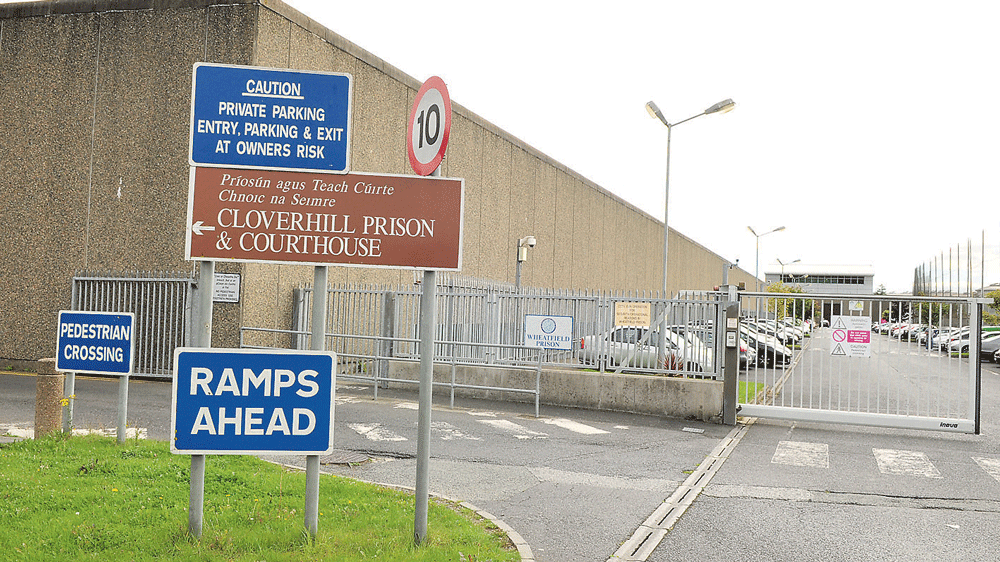

Allegations of abuse towards prisoners by staff in Cloverhill
SOME Prison staff at Cloverhill Prison falsified records of two prisoners who were found dead in cells, and used “excess force” to subdue others, including an incident where a prison officer jumped on a man’s head.
That’s according to a report from the Council of Europe’s Committee for the Prevention of Torture (CPT), who conducted a review of Cloverhill and four other Irish prisons in May last year, as well as the Central Mental Hospital, the Oberstown Children Detention Campus and the Ballydowd Special Care Unit.
The committee noted some improvements since their last visit in 2019 but said “several entrenched issues of concern remain”, including “pervasive overcrowding, inadequate mental healthcare, poor treatment of prisoners held on protection regimes, and gaps in legal protections for some of the most vulnerable persons including mentally ill prisoners and young people in detention”.
In most facilities visited, cells were “packed with three or four inmates in single or double-occupancy cells”
There had been a marked deterioration in prisoners’ physical safety in men’s prisons, while allegations of abuse at the hands of prison staff had increased since 2019, particularly in Cloverhill and Limerick prisons.
Incidents included a prisoner officer jumping “on the head” of a prisoner who was already being restrained by two other officers, and another prisoner allegedly being kicked and punched by officers while on the ground, before being relocated by officers “restraining both his hands and head, and dragged him into the corridor” and onto a landing, where another prison officer allegedly tried to “strangle him and drag him by the hair”.
They noted inter-prisoner violence was widespread, with drug-related conflict and contraband smuggling driving much of the violence.
The CPT was also highly critical of circumstances surrounding the deaths of four prisoners, including two at Cloverhill, that occurred between 2020 and 2023 and were, “in the Committee’s medical experts’ view, preventable”.
One man, who died in April 2021, had been placed in a closed supervision centre (CSC) cell after being accused of concealing illegal drugs internally, but had not been reviewed by healthcare staff.
The presence of rigor mortis indicated the prisoner had been dead for some time before he was found during the morning unlock.
A logbook kept by one prisoner officer had ‘asleep’ ticked for every fifteen-minute inspection during the night, however a statement from another prison officer said he had attended the cell “due to several activations” from the prisoner’s call bell during the same night.
“The Committee finds it incongruous that one prison officer can set out that he attended a cell several times during the night and yet another prison officer records in the CSC book that every 15 minutes during the night the prisoner was checked and was asleep.”
The CPT was also “deeply troubled by the falsification of records” in the case of another prisoner who was found dead just before 7am in a CSC cell in August 2022, whose logbook “contained entries that he had been checked at 07.00, 07.15 and 07.30 on the same day; these entries clearly having been made in advance of him having been found dead”.
Records indicated that the prisoner, who had mental health issues, had not consumed any food or fluids in the 48 hours prior to his death, and in the CPT’s opinion, had been “in all likelihood, placed in a CSC because he was mentally ill, rather than because he had been disruptive in the prison”, which they found deeply concerning.
The CPT called for the Irish authorities “to take concrete actions to address these critical issues”, including effective investigations of complaints made by prisoners, improved staff training, and a review of procedures following the deaths of prisoners.
In their response to the report, the government said that the CSC Standard Operating Procedure (SOP) “has recently been revised” and now “clearly outlines applicable sanctions for all staff who falsify records”.
They also said the “Irish Prison Service engage with and supports prison management and in particular those staff with the HR portfolio in the implementation of the Disciplinary Code”.

